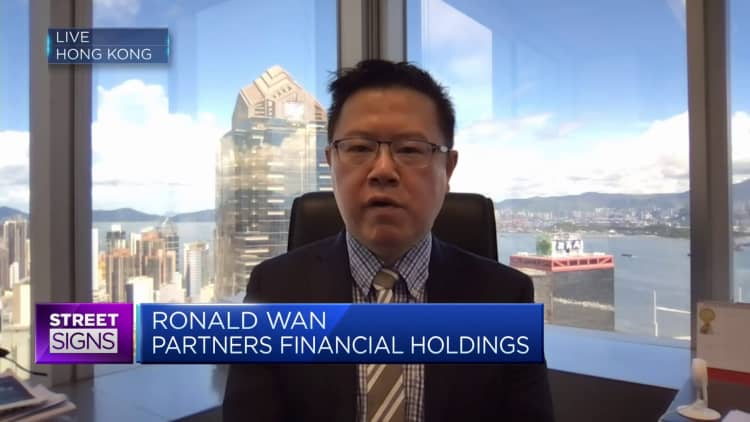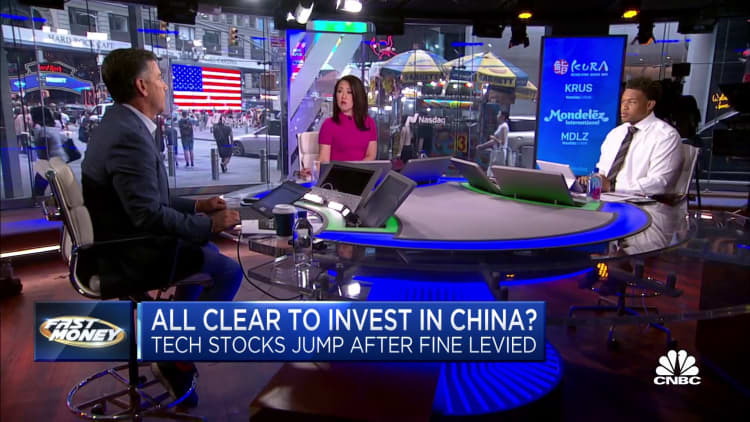Alibaba’s Hong Kong-listed shares jumped 4% on Monday morning.
Qilai Shen | Bloomberg | Getty Images
Performance of Alibaba’s Hong Kong-listed shares
In March, Alibaba announced a major restructuring of its businesses, which some analysts suggested could signal that the Chinese government could loosen its grip on the domestic tech industry.
“However, [regulators] have also emphasized the need for additional broader industry-wide regulations to effectively regulate the entire sector,” Oshadhi Kumarasiri, equity analyst at LightStream Research, said in a report published on research platform Smartkarma.
“This suggests that the optimism regarding the end of regulatory scrutiny may be premature, as the new broader regulations could be equally stringent,” said Kumarasiri.
Ronald Wan, non-executive chairman of Partners Financial Holdings, told CNBC’s “Street Signs Asia” that the growth rates of Alibaba and Ant Group will be “significantly restricted in future.”
“Even though we have seen the good news of the settlement of the dispute on the regulatory front, it means that, in future, Ant Group may be operating like a state owned bank in China,” said Wan.

Shawn Yang, managing director of Blue Lotus Research Institute, is bullish on Alibaba following Ant Group’s fine.
“We calculate that Ant Group would be worth $89 billion~ of which Alibaba’s stake is $29.4 billion~ given their 33% ownership in Ant Group. We suggest such valuation presents upside from consensus,” said Yang, referring to Bloomberg’s valuation of Ant Group at just $22 billion to $57 billion.
“In our view, [Bloomberg’s] valuation range is too low, as Ant Group is comparable to PayPal. With the end to regulatory overhang on Ant Group, we suggest that it can be valued at a multiple that is more similar to PayPal, which suggests upside to the Bloomberg valuation,” said Yang.
On Saturday, Ant Group announced a share buyback that values the company at $78.53 billion, according to state media CGTN. This is lower than Ant’s $315 billion valuation when it tried to list in 2020.
Kumarasiri said that the buyback “raises questions, especially if the company had plans for an IPO in the near future.”
“The company’s justification for the buyback, which includes providing liquidity to existing investors and attracting or retaining talented individuals through employee incentives, seems unnecessary if an IPO was imminent.”

